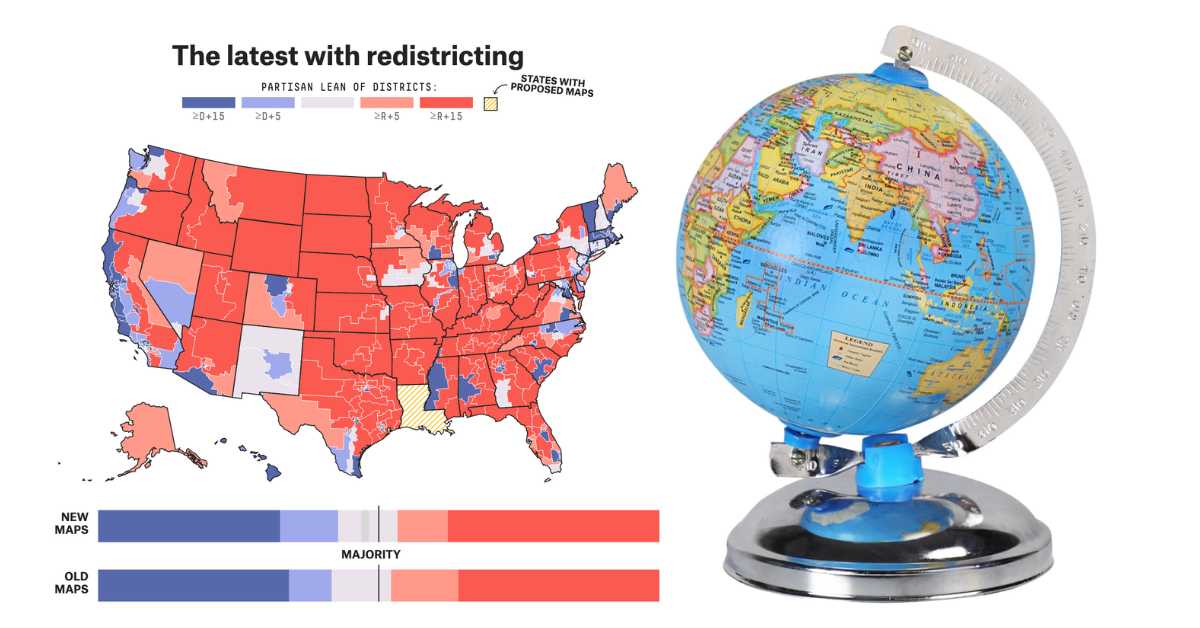In the ever-evolving political arena, the GOP Congressional Map in South Carolina has become a focal point of discussion. With the Supreme Court seemingly leaning towards supporting the Republican-drawn map, the potential ramifications for upcoming elections and the balance of power in Congress are profound.
Supreme Court’s Stance on the GOP Map
Recent reports from Bloomberg Law suggest that the Supreme Court is hinting at a favorable stance towards the GOP-drawn congressional map.
This development is significant, as the court’s decision could set a precedent for other states and reshape political boundaries, influencing South Carolina’s representation in Congress for years to come.
The Supreme Court’s position on such matters is always closely watched, given its potential to impact the political landscape. The court’s decisions in such cases often reflect broader societal and political trends, making this particular case one to watch for political analysts and enthusiasts alike.
The Controversy Surrounding the Map
Redistricting maps, particularly in pivotal states like South Carolina, have long been a source of debate. As highlighted by HuffPost, allegations of gerrymandering have been rampant.
Critics argue that the maps, especially the GOP’s version, were strategically drawn to favor one party, potentially undermining the representation of specific communities and demographics.
The essence of the controversy lies in the balance of power. If one party can draw a map that ensures their dominance in future elections, it challenges the very foundation of democratic representation. This has led to numerous legal battles, public debates, and calls for more transparent redistricting processes.
Implications for Future Elections
The court’s decision on this matter will undoubtedly influence future elections. An analysis by FiveThirtyEight suggests that should the court approve the GOP’s map, it could solidify the party’s advantage in the House.
This could tilt the balance of power significantly in the Republicans’ favor in upcoming elections, potentially for a decade or more.
The ripple effects of such a decision would be felt not just in South Carolina but across the nation. Other states grappling with similar redistricting challenges might look to this case as a benchmark, influencing their strategies and decisions.
A Broader Look at Redistricting Battles
South Carolina’s situation is not unique. As reported by The Washington Post, states like Alabama are also in the midst of redistricting battles. The Supreme Court’s involvement in these cases underscores the national importance of fair electoral maps.

The broader challenge is ensuring that redistricting remains a tool for fair representation rather than a weapon for political advantage. As the nation’s highest court, the Supreme Court’s decisions in these matters will play a pivotal role in shaping the future of American democracy.
Conclusion
The debate over South Carolina’s GOP Congressional Map is a microcosm of the larger challenges surrounding redistricting in the U.S. As the nation awaits the Supreme Court’s decision, the potential implications for the political landscape are vast.
This case serves as a stark reminder of the importance of fair representation and the ongoing challenges in ensuring that every voice is heard in the democratic process.
For those interested in delving deeper into the intricacies of the GOP Congressional Map and its potential impact, SCOTUSblog offers a comprehensive analysis and commentary on the matter.
Disclaimer
The information provided in this article is for informational purposes only and does not constitute legal or professional advice. While every effort has been made to ensure accuracy, readers are advised to consult with a qualified professional or expert before making any decisions based on the content of this article.



